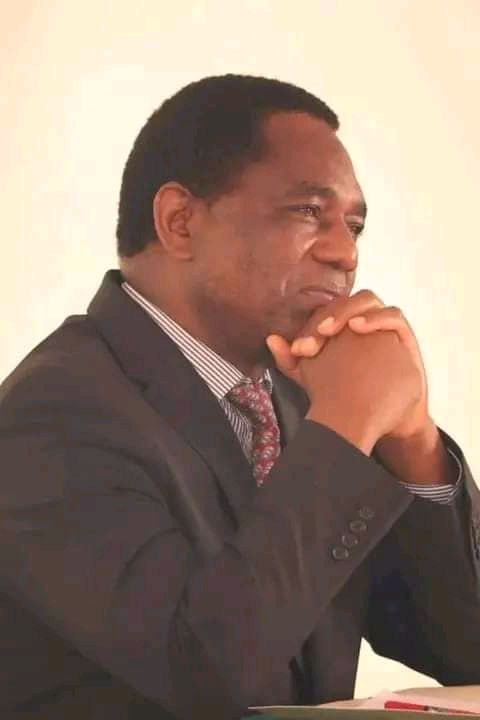Yet again, Zambian journalist Thomas Allan Zgambo faces prison over reporting
August 21, 2024 5:19 PM EDT
Lusaka, August 21, 2024—Zambian journalist Thomas Allan Zgambo is facing up to seven years in prison for his reporting on corruption and poor governance in the southern African nation. It is at least the third time that Zgambo has risked imprisonment for his online journalism, a growing threat for journalists in many African countries.
On August 6, Zgambo was arrested on allegations of publishing seditious material, which under Zambian law includes content advocating for the overthrow of the government or raising “disaffection” among the public, for his July 28 commentary on the Facebook page of the online news outlet Zambian Whistleblower, which called on the government to be transparent about any links between a property it had rented and President Hakainde Hichilema.
Zgambo told CPJ that the police detained him in a cell until August 8 in a bid to get him to reveal his sources. “That is why they held me there for two nights. They just wanted to punish me,” said the journalist, who is due back in court on August 22.
When Hichilema won a landslide victory in 2021, he vowed that “the media will be freed” amid broader rhetoric on improving conditions for the press in Zambia. Despite these commitments, CPJ has since documented several attacks on the press, including arrests of journalists covering protests and the opposition.
“President Hakainde Hichilema’s promises to ensure media freedom in Zambia ring hollow after a journalist who criticized him was arrested and charged with an offense that carries a lengthy prison term,” said CPJ Africa Program Coordinator Muthoki Mumo, in Nairobi. “Zambian authorities must immediately drop all legal proceedings against Thomas Allan Zgambo. In addition, Zambia should scrap laws that criminalize the work of the press.”
A pattern of legal harassment
Zambia is widely seen as one of Africa’s most stable democracies. From 2017 to 2022, it had no journalists in jail at 12:01 a.m. local time on December 1, when CPJ’s annual prison census is conducted.
In 2023, Zgambo became the first Zambian journalist to appear in the census in seven years. He was arrested on November 28 over his Zambian Whistleblower report that the Zambia National Service, an arm of the defense force, was importing “substandard” genetically modified maize from South Africa without informing consumers of any potential harm.
Zgambo was freed on bail on the morning of December 1, 2023, and is due back in court for a hearing on this case on August 27.
Zgambo is no stranger to the Zambian courts. He was first charged with sedition in 2013 after documents about the then-President Michael Sata were found in his home. Zgambo told CPJ that he was released on police bond but never received a date to appear in court. Sata died in 2014.
Weaponizing laws to target online journalism
Like Zgambo, an increasing number of journalists in the region mainly publish via social media amid falling mainstream revenues and government repression. For example, in Somalia, social media can be a lifeline for local communities to access independent journalism and for freelancers to share their reporting.
CPJ has been tracking the weaponization of existing, often colonial–era, legislation to criminalize journalism, as well as the introduction of new laws to target online freedom of expression in countries like Nigeria, Tanzania, and Kenya. Eleven of the 12 imprisoned Rwandan and Ethiopian journalists in CPJ’s 2023 prison census operate outlets that publish on YouTube.
The African Commission on Human and Peoples’ Rights, an African Union body, has called on countries in the region to repeal all criminal defamation, insult, and sedition laws. Although sedition provisions have been repealed in Uganda and Malawi, countries such as Zambia and Tanzania continue to use them against journalists.
Zambia’s State House spokesperson Clayson Hamasaka referred CPJ’s request for comment to the police. Police spokesperson Rae Hamoonga did not respond to CPJ’s calls and text messages requesting comment.
Credit: CPJ
Allan Zgambo faces prison over reporting
